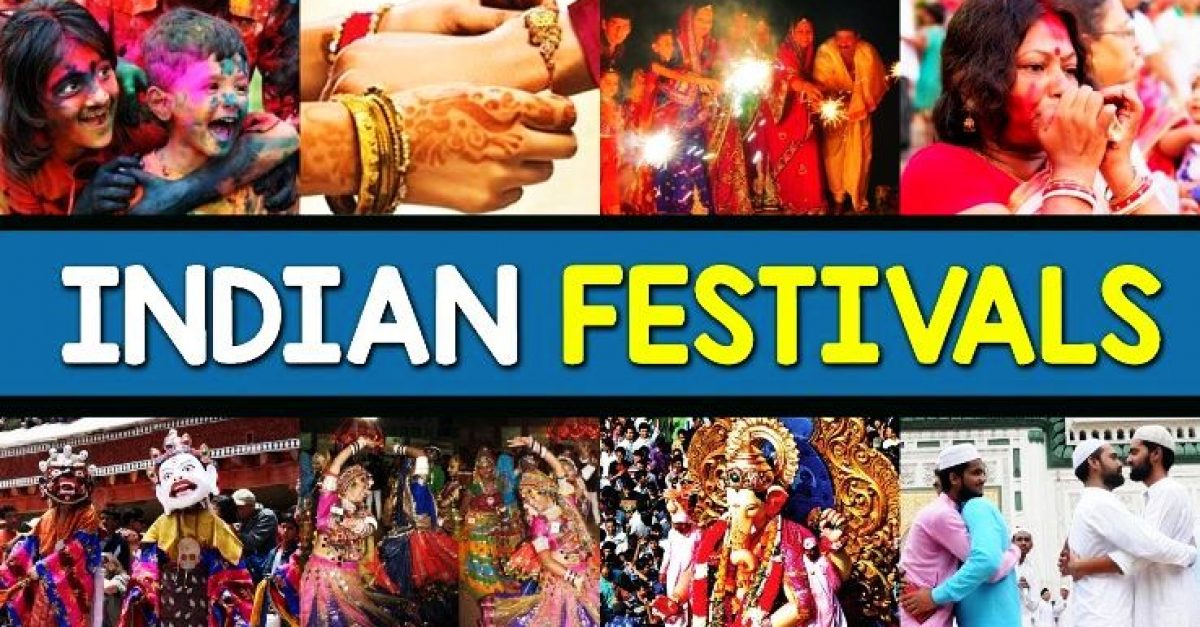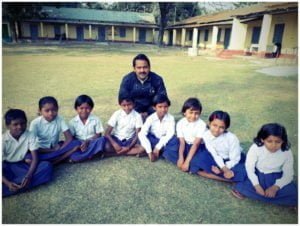Religion is being brought into every aspect of life. This must stop; it is the road to madness. Sing your bhajans and shabads, say your namaaz or prayers as many times as you want, but in your home or your place of worship. That is for the salvation of your soul. Leave the soul of the nation to our Constitution and law.
—–Khushwant Singh, The End of India (2003)
Today the question of identity and belonging based on religious festivals, irrespective of communities, takes a prominent shape in our discourses of daily life and politics. During religious festivals a plain argument like ‘the things that touch you, may not touch me’ takes a back seat. We are too clever to accept the truth. In the name of universality of the religious occasion, it ruthlessly separates people on the basis of religious identity. Each religious ritual has its own set of practices. Celebration of a particular religious practice does not necessarily mean the celebration of all religious practices. A particular religious festival cannot transcend its own inherent limitations and inhibitions. If a particular religion is a way of life to a particular community, then multiple religions have multiple ways of life for multiple communities. Which festival we celebrate, which we pamper, which we sponsor, depends on the fold of participatory people to whom that celebration has cultural ties. Outside that fold it may or may not have any sacred affinities. A religious celebration, irrespective of its hue or contour or calibration is exclusionary on its lengths and breadths. It is not inclusive. It is not meant to be It loves its boundaries. Outside that boundary the non-participants should fend for themselves. Religious festival has its own precepts and proclivities. People in general feel comfortable to move within this religiously defined border. Very few want to cross the closed territory.
So, religious celebration is always limited to a set of people, in its scope and reach. It is not inclusive. It is not universal or sarbojonin as is always claimed or propagated. It is particular. Identity, whatever colour it may assume, is both adhesive and non adhesive. It unites people on basis of race, caste, gender, colour, creed, religion, region, language, profession, and ethnicity. It also acts as a potential factor of disunity. From this perspective, religious festivals, be it the festival of Hindus, Muslims, Christians, or Buddhists, etc. champions a particular identical stand. It also relegates the non-participatory religious people to the passive plains of segregation and separation. Thus religious identity may boost a particular community’s sense of cultural belonging. But it at the same time disorients people of other communities and makes them conscious of their separate identities.
Religious celebration is a sale of a particular religious identity. Religious identity has a huge potential market in India and elsewhere, and marketing religious identity during festivals online and offline is an agreed fact. Be it Hajj pilgrimage or Amaranth Yatra or Ganga Sagar or Kumbh Mela, be it Durga puja or Eid or Holi or Christmas or Ganesh Chaturthi, sale of religious identity is everywhere. In Friedman’s flat world religious symbols, signs are on sale, and the demand is ever increasing among the masses. I am a witness to thousand scenes where tall places of worship made of glossy marbles are frowning from the sky over unending valleys of tarpaulin-covered shacks and shanties of squalor and dirt and soot.
Religious pilgrimage has also been the site for the sale of identity. For example, Mecca, the sacred city of the Muslim world has been the city of proliferating bling, a haven of consumerism and opulent tourism… They call it ‘Saudi Las Vegas’. Like any other American city with its gambling casinos and gaudy architecture, has become a playground for the rich. Throughout the year the religious tourists visit partly to pray in the Sacred Mosque but also to shop in its innumerable opulent malls…Many have property around the Sacred Mosque not as an investment but in the hope that it will translate into real estate into paradise. Rich Muslims around the world pay a quick visit first to enhance their prestige and to make them appear more pious to the eyes of the society…Mecca has nothing especial. It is utterly mundane. Everything, from fake watches to plastic bottles of holy ‘Zamzam water’ is on sale. Crude comforts of consumerism are very dear to Mecca clerics. Ignorance is holy to them, and their open denigration of all the people and things non-Muslim have whetted the zeal of jihadis for killings and massacre…Minarets jostle with skyscrapers; motorways and towers align to face the Kaaba…The sectarian and racial divisions reign supreme. The Saudi clerics with beads in hands instead of giving charity to the poor contempt and curse them.[1]
Sale of religious identity, like that of Hajj pilgrims, is to be found among the Hindu or Christian or other religious pilgrims. Pilgrimage is an act of marketing to effectively sell and promote religious identity. It is primarily initiated to make maximum profit out of this religious investment. Pandemic or poverty temporarily hinders it. But this hindrance to the selling and shopping of religious identity is swept away by the deluge of religiously identity enthusiasts.
By claiming the universality of religious festival we have aggravated the harmony that is supposed to exist among different communities. It is a hugely invested myth made popular in Indian history down the ages by our great men of East, Vivekanada, Rabindranath, Gandhi, to name only a few. They are all Hindus. We may agree or not. Their worldview and outlook were soaked in Indian philosophy of the Self. Yes, they were not parochial in their vision. They had big hearts where people from other communities have also found a temporary shelter. But had not they been guided by the Vedanta and the Upanishads? Did not they believe in rebirth or the ways of salvation? Had not they made a quest for God within one’s Self or Atma. Christianity and Islam or Buddhism may have influenced them, and thereby may have coloured their insights. But such remnants of other religions have a peripheral existence. At the core they are Hindus. Moderate or extreme? All we know.
The bitter truth is that every Indian community has kept itself apart from the others. The traditional approach to diffuse communal tension was the Ram-Rahim or the Ishwar-Allah teyro naam approach, preaching that all religions emphasize love between humans….It is true that a truly religious man has no hatred in him. But such men have become a rarity while those who display their religiosity by emphasizing differences between religions have become a common phenomenon. We are unable to see our own shortcomings but we are eager to see the fatuous in other people’s faiths. The Ram-Rahim approach is just a smoke screen.[2] Sooner we swallow it, the better.
There is no universality in religious festival. Each festival is meant for a particular community. Religious festival is a sales-counter for the sale of religious identity, religious signs and symbols. And our country has a huge potential for this emerging festive markets. Religious festival in public spaces does not cement the cultural gaps. It widens them.
Works Cited:
[1] Sardar, Ziauddin. Mecca: The Sacred City. New Delhi: Bloomsbury Publishing India, 2014. pp.348-63.Print.
[2] Singh, Khushwant. The End of India. New Delhi: Penguin Books, 2003.p. 122.







